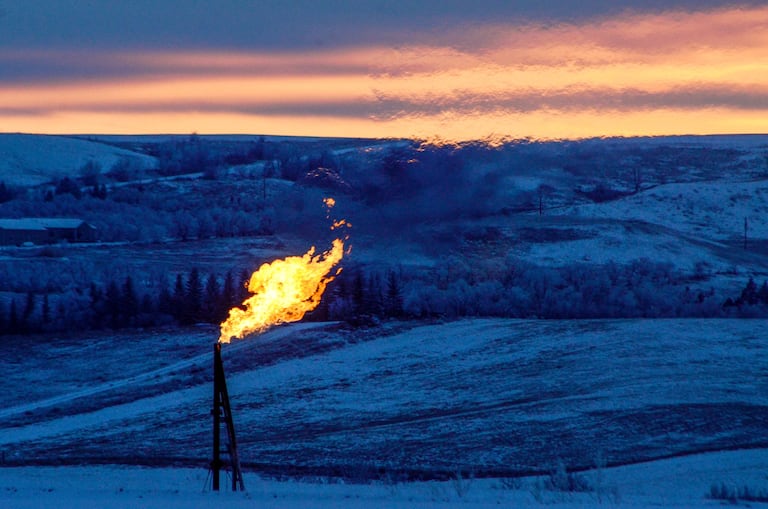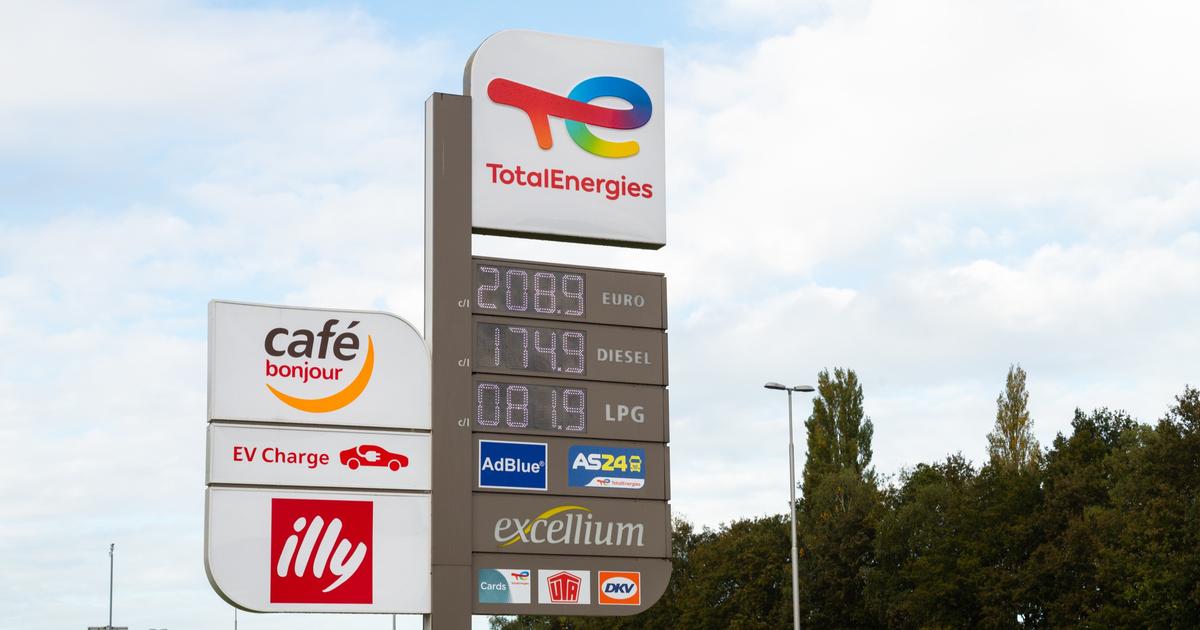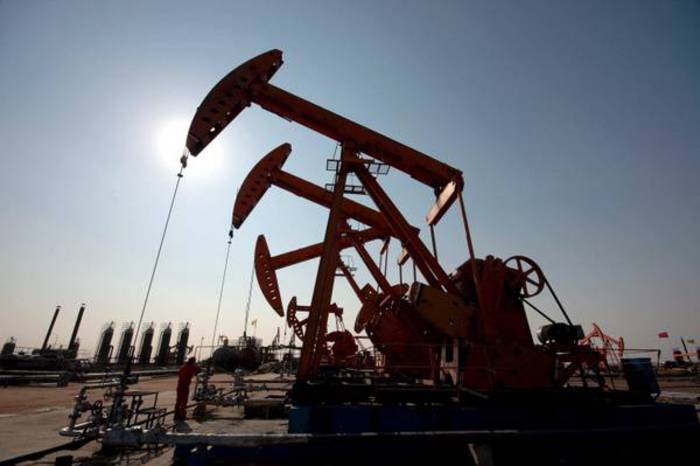A gas flame in an oil well in North Dakota (USA) Andrew Cullen / Reuters
The hegemony of oil in the world energy matrix has its years, decades, numbered.
But the market has saved the biggest match ball in its history: in April, the pandemic led the US benchmark to trade negative - the world turned upside down: you paid to get rid of barrels and not to buy them - and the search for storage space. storage for the crude that was pumped and not consumed as a result of the confinements became the main struggle between the main players in the sector.
Less than a year later, the situation has taken a radical turn: both European Brent and American Texas are trading today at their highest level since January last year, days before COVID-19 officially claimed its first death in China.
The last impulse came this Thursday, when the main exporting countries have agreed against all odds to maintain their production.
Everything has changed a lot since then and GDP has suffered - on both sides of the Atlantic: Asia is another world - its biggest debacle since World War II, but oil is following its own path.
Markets see recovery
The rise in the price of oil does not reach a ceiling
The price of oil leaves the pandemic behind and exceeds 60 dollars
A clash of the oil titans at the worst possible time
The market had been discounting for days that the expanded Organization of the Petroleum Exporting Countries (OPEC), better known as OPEC +, would opt this Thursday for a moderate increase in production from April.
But the cartel, always under the baton of its two most influential members - Saudi Arabia and Russia - had an ace up its sleeve: its decision to keep the pumps intact has upset any previous forecast and has led crude to score its best session. in weeks, with an increase of more than 4% in both brent and texas.
The first already far exceeds 65 dollars and the second, 60.
With demand recovering sharply in the heat of the lifting of mobility restrictions, a stable supply suggests a market much tighter than in recent times, when pumping has repeatedly exceeded consumption.
This leveling of forces in the immense global oil souk is also making it possible to reduce inventories in the main economies of the world.
And obtain more profit per barrel to the producers, although, of course, at the cost of sacrificing volume.
"OPEC + is indicating that in the short term it prefers to sell less oil for more money," emphasize Bjørnar Tonhaugen and Paola Rodríguez-Masiu, analysts at the Norwegian consultancy Rystad Energy.
The decision to keep the supply intact comes at a time of intense debate on inflation in the main western economies, with a growing number of voices predicting a rise in prices in the medium term in the heat of the end of the lockdowns and the gradual recovery of the consumption.
In this context, the rise in oil prices - 30% so far this year, in the case of the European benchmark - is one more reason to think about inflationary tensions in the near future: crude is one of the main components of general price indices from around the world.
Its escalation also coincides with that of other raw materials such as copper and various foods.
Within the enlarged OPEC, the largest interested in not increasing production was the largest oil exporter on the planet, Saudi Arabia, whose main objective of its strategy is to recover the price to around $ 70.
In practically all the pools there was an increase of between one million and one and a half million barrels per day at the meeting this Thursday, an amount equivalent to that consumed by countries such as Spain or Italy.
Only Russia and Kazakhstan, two countries that need to increase oil sales to stabilize their public finances and meet the growing demand of their domestic market, will be able to increase their pumping minimally: by 130,000 and 20,000 barrels, respectively.
"Definitely, OPEC + risks straining the market too much," warns Amrita Sen, head of analysis for oil issues at the British consultancy Energy Aspects, in statements to Bloomberg.
After the strong rebound in prices this Thursday, a second risk is added: waking up the sleeping lion of
American
fracking
, whose producers begin to pay bills from $ 60.
And that figure is history.















